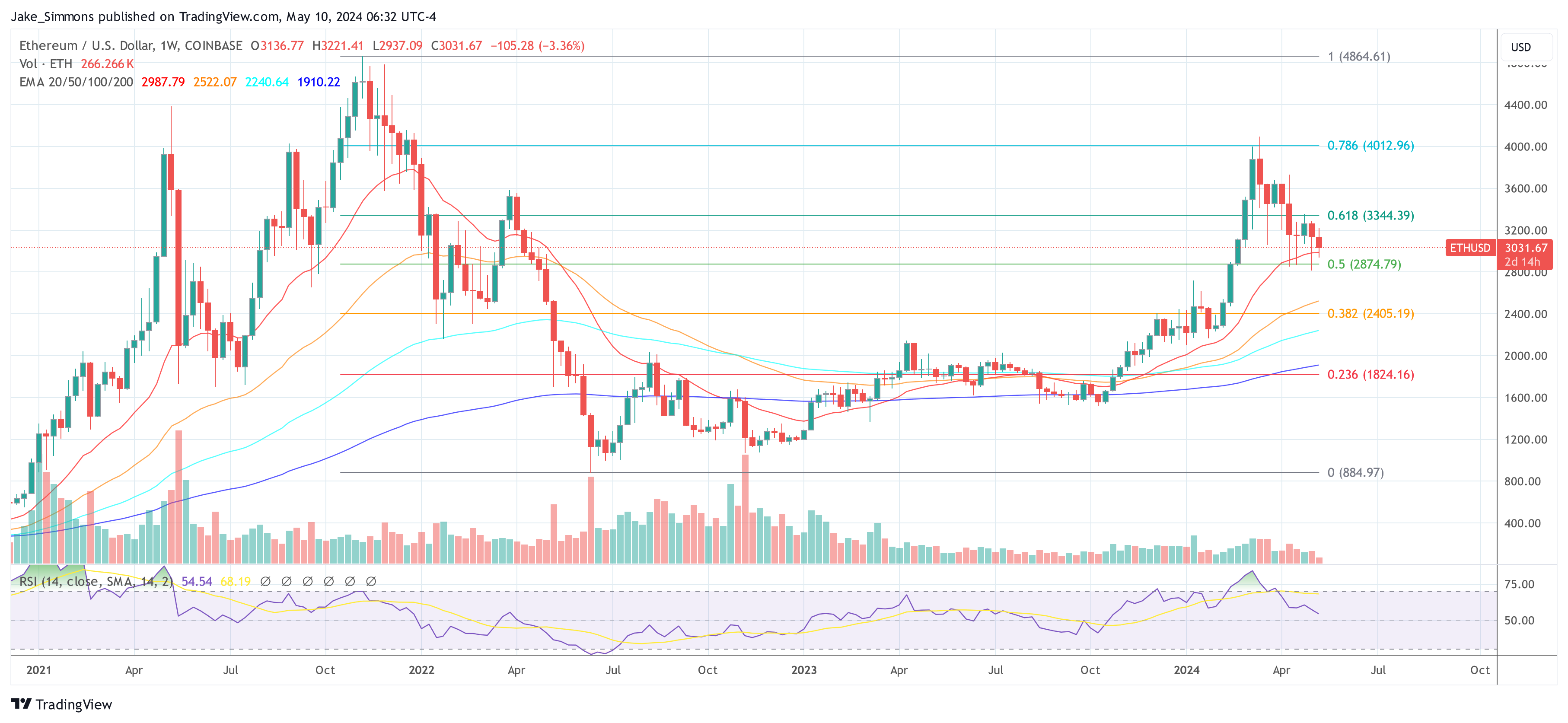[ad_1]
Ethereum has received a lot of criticism recently, and accordingly the ETH price has underperformed other altcoins. However, Ryan Berckmans, a prominent contributor of the Ethereum community and investor, boldly claims we are entering the “Age of Ethereum,” a period that could redefine the hierarchy of blockchain technologies. Berckmans shared his insights via X, sparking a mixture of enthusiasm and skepticism among the crypto community.
Berckmans argues that Ethereum’s underlying fundamentals remain exceptionally strong despite facing several perceived challenges. He tackles common investor concerns directly, providing counterpoints to each that highlight Ethereum’s enduring strengths and potential.
“ETH’s fundamentals look excellent,” states Berckmans. He addresses the concerns about competition from Bitcoin’s Layer 2 applications, regulatory hurdles from the US Securities and Exchange Commission (SEC), and the rise of other blockchains like Solana.
According to him, these are misconceptions rather than true barriers: “The thing about all these headwinds is that none of them are real. In reality, Ethereum is on the cusp of becoming a global economic backbone and achieving permanent institutional legitimacy.”
Why Ethereum Is Allegedly Superior To Its Competitors
Berckmans critiques Bitcoin’s L2 ecosystem, suggesting that it falls short in practical aspects compared to Ethereum’s more mature and versatile platform. “Buy ETH because Bitcoin’s L2 app ecosystem is currently trash and will always be significantly worse in all practical ways to Ethereum,” he states, emphasizing the superiority of Ethereum for developers seeking robust, tested solutions.
Related Reading
On the regulatory front, despite looming concerns that the SEC might classify ETH as a security, Berckmans remains optimistic about Ethereum’s position: “Buy ETH because the SEC probably won’t be successful in classifying ETH as a security. Even if it happens, the Executive Branch will ultimately be unsuccessful in curbing Ethereum’s growth because we’re very useful to America and to many powerful political blocs, such as Big Tech and tradfi asset managers.”
Addressing competition from Solana, Berckmans points out that perceived advantages in scalability and application growth may not be as solid as they appear. He suggests that Ethereum does not face any genuine competition: “Buy ETH because Solana is not as scalable as it looks; is not as high growth as it seems; has more fast L2s as competitors than it may appear; has significantly less client diversity and more tech risk than is sold; and overall, is weaker and more threatened than most think.”
Related Reading
Moreover, Berckmans discusses the strategic movements of major financial players such as Visa, MasterCard, JP Morgan, and Citibank, which have built their own blockchains. He predicts these institutions will eventually gravitate towards Ethereum due to its extensive network and trustless, global operations.
“Buy ETH because Visa, MasterCard, JP Morgan, and Citibank did build a shared chain and are using it instead of Ethereum, and soon, having tasted the future, they’ll migrate to Ethereum as the customers and the universe of potential partners are on Ethereum,” claims Berckmans.
The crypto expert also clarifies the relationship between Ethereum and its Layer 2 solutions, stressing a symbiotic dynamic where both layers accrue value, much like railways and the businesses that thrive upon them: “Buy ETH because value accrues to all of L2s and ETH and our apps. It’s a symbiosis.”
Overall, the bold predictions of Ryan Berckmans offer a compelling vision of Ethereum’s potential to not only weather current challenges but also to emerge as a central pillar in the future of global finance. Whether this vision will fully materialize remains to be seen, but for now, the notion of an “Age of Ethereum” is sparking considerable debate and interest among investors and industry observers alike.
At press time, ETH price traded at $3,031.67.

Featured image created with DALL·E, chart from TradingView.com
[ad_2]
Source link


